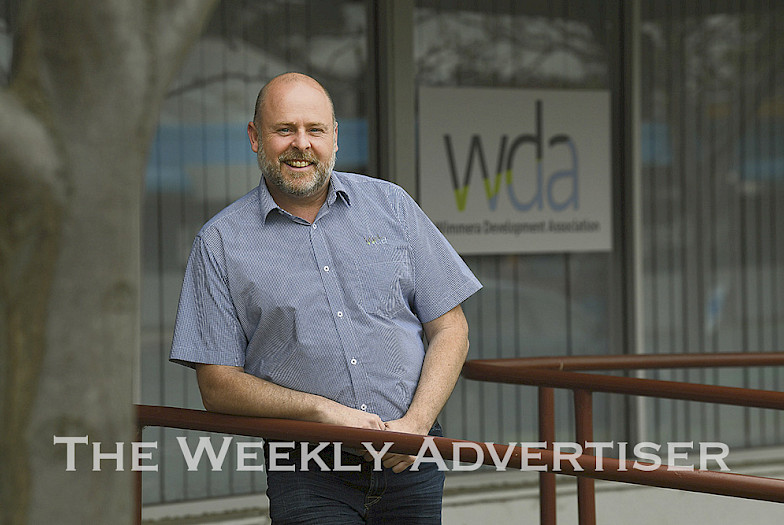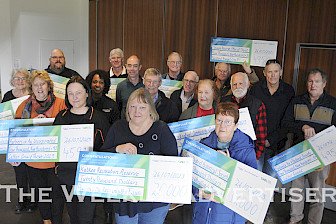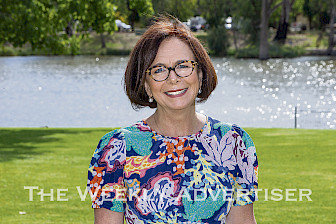He said Generation Z was a digitally integrated generation and had an expectation of a mobile lifestyle, compared with previous generations.
“For this generation, digital is not separate, it is intertwined with their lives seamlessly and this is the case more than the generations before them,” he said.
“When we think about technology, we think about new tech, but it’s worth reflecting on the outgoing tech. Some Gen Zs might never own a physical credit card, a wallet or an analogue watch, as all of these functions are increasingly being performed on smart devices such as an Apple Watch.”
“We need to be conscious there are certain communication and language barriers the digital world presents to us.”
Mr Dusting said World Economic Forum statistics predicted two of three children entering primary school today would end up working in jobs that do not yet exist.
“I think that is a key takeaway for educators and those training Gen Z; one of the best things we can do is to equip them with the disposition of lifelong learning,” he said.
“The world is changing very quickly, and today’s workers are finding an increasing need to develop the habit of refreshing their skills and learning completely new ones.”
Mr Dusting said a mobile lifestyle included working from anywhere and endless opportunities.
He said a current school leaver could expect to have 18 different jobs across six different careers in their lifetime.
“We’ve seen remote working become increasingly possible. Not in every job or industry is it going to be possible to work remotely, but what has changed is we’re calling it the work from anywhere era,” he said.
“There is an expectation that if work doesn’t need to be location-bound it shouldn’t be.
“There’s also strong entrepreneurial spirit we see across Gen Z, not to say everyone wants to run their own business, but in one of our national studies, 86 percent of high school and tertiary students say they want to work in something they have started themselves.
“Just 14 percent of Gen Z are looking for traditional employment in terms of a 9am to 5pm, which highlights how the mindset has shifted.
“The challenge and opportunity for leaders is how can we ground them with a sense of purpose and direction when there feels like endless and sometimes overwhelming options.”
Mr Dusting said with the traits of Gen Z in mind, it was important to think about how they wanted to learn and work.
“Number one, if you are a workplace leader, building culture will be key and there’s a few ways that can be done,” he said.
“When it comes to communication and feedback there’s some key differences with Gen Z. They are more likely to prefer receiving praise and positive feedback a few times a week. They are also up for constructive feedback – they are keen on shorter, more regular conversations when it comes to feedback.”
Leadership style
Mr Dusting said another key shift was in leadership style, and Gen Z wanted a more collaborative approach with someone who was approachable, a quality communicator and showed empathy.
He said Gen Z also looked for purpose and meaning within their career.
“We might say sometimes you have to do jobs you don’t like – but this is a window into their psyche, which is a key shift generationally,” he said.
“Increasingly work is not just seen as a job but it’s something linked to a sense of meaning and purpose as a person.”
Mr Dusting said celebrating impacts, personal and team wins, was the third factor to consider.
“What motivates people at work, across all ages, is seeing the positive impact of their work,” he said.
Department of Education, Jobs, Skills and Pathways manager for Wimmera and South West Andrew Hardiman said there was opportunity for industries to embrace modern ways to communicate with Generation Z.
He said rather than thinking about embracing what Generation Z need as a challenge, it was an opportunity.
“We know in the Wimmera and South West we are experiencing skills shortages, so the attraction of talent is really competitive and attraction of young people to keep our industries surviving is important,” he said.
The webinar concluded with a panel discussion, which included insights from Wimmera Southern Mallee Development regional development program manager Mark Fletcher and Wimmera Southern Mallee LLEN executive officer Vanessa O’Loughlin.
Mr Fletcher said the organisation was working towards building and stabilising the population.
“We’ve been doing a lot of work about looking at the skills required for up-and-coming industries,” he said.
“We found, through recent surveys, entry-level hospitality across the region was struggling for workforce.
“In our region, we see a high level of apprenticeship and traineeship completion, but what we don’t do as well is retain those people.”
Mr Fletcher said Generation Z was more likely to relocate, change jobs or change careers.
“It’s interesting to have conversations about how we can engage with certain age groups and keep them engaged in their workforce, it’s definitely a challenge and a new mindset is needed,” he said.
Mrs O’Loughlin said LLENs created partnerships between industries, schools and community.
“The Department of Education sees LLENs as such a good fit and ally for supporting their reforms and priorities,” she said.
“We run programs that increase aspirations, give young people opportunities to explore careers, pathway modelling, hands-on applied learning and workplace opportunities.
“We have one thing in common, we want to build, create and encourage positive futures for our young people.”
The entire March 27, 2024 edition of The Weekly Advertiser is available online. READ IT HERE!
The entire March 27, 2024 edition of AgLife is available online. READ IT HERE!






